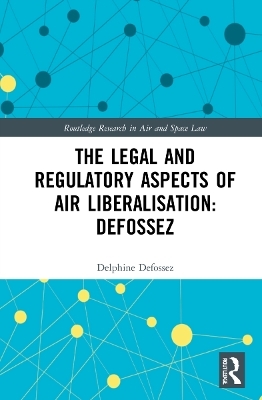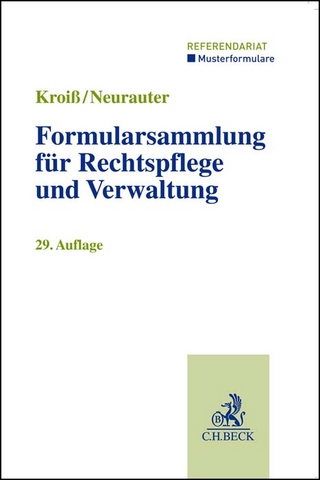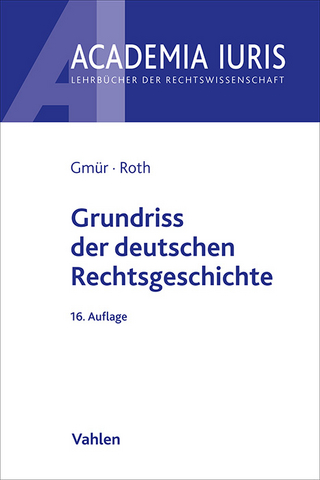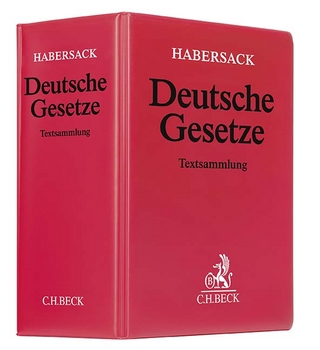
The Law and Regulation of Airspace Liberalisation in Brazil
Routledge (Verlag)
978-1-032-18087-8 (ISBN)
The book starts from the premise that the current aviation framework, in Brazil, cannot sustain a full liberalisation in the long run. While the competition rules in place offer a strong framework, which only requires small modifications, these rules are not "enough" to foster a "healthy" liberalisation. In fact, until recently, Brazilian airlines were operating in a homogenous market, where competition was artificial. This artificial competition, obtained through the imposition of a legal obligation to provide water and a snack and grant a 23kg bag allowance, has resulted in a highly concentrated domestic market with very few players. Compared to other same size markets, such as China or India, Brazil is far behind in terms of airlines operating at national level. Consequently, the opening of the domestic market must be closely regulated to avoid national carriers suffocating under external pressure. For this reason, state intervention during the liberalisation process is crucial. State intervention is also with regard to the protection of passengers.
The other major problem is the protection framework for passengers which is much too uncertain and burdensome. In a sense, it is detrimental to the domestic market and passengers. Indeed, there is no harmonisation of passenger compensation leading to contradictory judgments and possible high moral damages which hinders legal certainty for airlines. Compared to the situation in the EU, in Brazil, airlines have a limited range of defences, which are often dismissed by courts.
This book, therefore, critically analyses the policies and regulations in place by mainly comparing the Brazilian framework to the European one. This choice has been motivated by the fact that European liberalisation is considered the best so far, and as Brazil is starting this process much later, it could benefit from the European experience.
This book will be of particular interest to scholars and practitioners interested in the Brazilian system.
Delphine Defossez is Lecturer in Law at Northumbria University, UK
CHAPTER 1 – Setting up the scene
The Brazilian aviation landscape until 2019
The two major challenges
Liberalisation benefits for Brazil
The role of the State in aviation
Legitimatcy of state intervention and the Rule of law
The thin line between regulation and competition
Market failure in aviation and its liberalisation/deregulation
Market failure and Natural monopolies
Airports: natural monopolies or not?
Concluding remarks
PART I- European liberalisation
CHAPTER 2 – Historical Perspective on Liberalisation of the Aviation Sector
The changes in international aviation law: the road to liberalisation
The European liberalisation
The First Waves of Liberalisation in Europe
An Integrated System: The Single European Sky (SES)
Other models of liberalisation and their influence on the European model
The US deregulation
Comparison EU-US
The US- EU Open Aviation Area
The Asian liberalisation
The ASEAN- EU Agreement
The influence on Australia
Concluding Remarks
CHAPTER 3 – The repercussions of the EU liberalisation
The repercussions of the EU liberalisation
Positive impacts
Negative impacts
The case of Alitalia (AZ)
Competition advantages and (possible) problems
Overview of competition rules applying under the EU system
Airline companies
More competition, yes, but not to the detriment of the security of passengers
Consumer protection: Regulation 261/2004
The problematic Regulation 261/2004
Compensation for cancelled flights.
Compensation for long delays.
‘Extraordinary circumstances’: the secret weapon of airlines
Resolution 261 and international law
Concluding Remarks
PART II- Brazil liberalisation
CHAPTER 4 – The Brazilian legal system
Brief Overview of the legal system: hierarchy of norms
The main organs in aviation
The Brazilian legal system on aviation
Laws applicable to aviation
General aviation liability regulation
Liability in case of collisions
Consumer Protection: The Codigo de Proteçao e Defesa do Consumidor (CDC) vs the Montreal Convention
The promising Projeto de Lei (PL) 6960 de 2010
Lei 14.034/20 de 2020
Consumer protection: ANAC
Resolution 141/2010
Cancellation
Delay
Extraordinary Circumstances
Resolution 400/2016
Competition law
Concluding remarks
CHAPTER 5–The Brazilian national ‘liberalisation’
Why liberalisation and not deregulation?
ANAC’s perspective vs international understanding
Why liberalise the Brazilian market?
Bilateral agreements: an outdated concept?
Concluding remarks
Chapter 6- Liberalisation of the national market: possible changes
The current aspects of the Brazilian market: brief overview
Economic effect
Evolution of supply
Changes in demand
The routes
Airline companies
Hubbing
New business models
Low-Cost Carriers (LCCs) as game changers
The need for product differentiation
Higher risk of bankruptcy
Airline privatisation
Consolidated market and Avianca’s ‘bankruptcy’
Airports
Airport charges
Increase in competition and airport saturation
Major gain for regional airports
Slots allocation
The Role of the State
Regional changes: Mercosur
Concluding remarks
CHAPTER 7 – State intervention
State intervention is still necessary
State intervention after the potential liberalisation in Brazil
Bilateralism and liberalisation
Avianca’s tragedy and the role of the judiciary
Market Regulation and State intervention
Natural monopolies
State aid
Abuse of dominant position
Codesharing and cartel formation
Public interest element
Consumers
Self-regulation and Private ordering
The GATT approach
Concluding remarks
CHAPTER 8– Consumer protection
Existing a solution
The problems with the current system: irreconcilable judgments
Theory vs Practice
It is always the airline’s fault
Brazil exorbitant jurisdiction: The NYE case
The outrageous case: Valentine’s Day Lunch
The totally irreconcilable judgments
Two separate contracts? Make it just one
Consumidor.com.gv
The necessity to adapt the existing system and the use of Online Dispute Resolution (ODR) as a way forward
Why Online Dispute Resolution?
Collective redress and ODR
Public authority rather than private actors
Concluding remarks
Chapter 9- Conclusion
| Erscheinungsdatum | 19.04.2022 |
|---|---|
| Reihe/Serie | Routledge Research in Air and Space Law |
| Zusatzinfo | 1 Line drawings, black and white; 1 Illustrations, black and white |
| Verlagsort | London |
| Sprache | englisch |
| Maße | 156 x 234 mm |
| Gewicht | 453 g |
| Themenwelt | Recht / Steuern ► Allgemeines / Lexika |
| Recht / Steuern ► EU / Internationales Recht | |
| Recht / Steuern ► Öffentliches Recht | |
| Technik ► Luft- / Raumfahrttechnik | |
| Wirtschaft ► Volkswirtschaftslehre | |
| ISBN-10 | 1-032-18087-0 / 1032180870 |
| ISBN-13 | 978-1-032-18087-8 / 9781032180878 |
| Zustand | Neuware |
| Haben Sie eine Frage zum Produkt? |
aus dem Bereich


